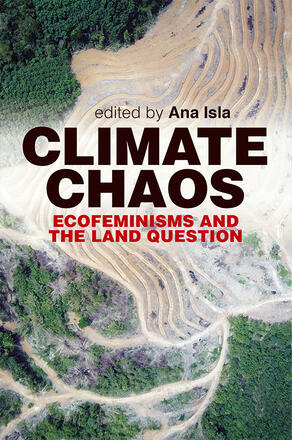
Climate Chaos
Ecofeminism and the Land Question
La description
This book describes the field of material ecofeminism, provides an overview of the land question, and explores how reigning discourses of “sustainable development” have led to a commodification of nature and have effaced the multiple visions, uses, and relationships of local human communities. The articles in this book are spaces of political projects and values that nurture anticapitalist, antipatriarchal, and anticolonial oppressions.
Reviews
"At a time when macho politics are intensifying while the basis of survival for most of humanity is being undermined, ecofeminist readings could not be more important in examining the social causes and chaotic consequences of a most pressing and globally destructive process that is capitalism-induced: accelerated climate change. In this edited volume, activist intellectuals from many backgrounds methodically expose the structural intersection of diverse forms of oppression (social as well as beyond) that characterize an always profoundly patriarchal, racist, heteronormative capitalist world disorder that produces the current manifold global predicament. This systematic ecofeminist analysis of the linkage between climate change and intersecting oppressions is long overdue. This is not only because it facilitates a holistic understanding of climate change that continues to be largely omitted in the mainstream and wilfully absent or attacked in re-emergent violent groupings of oppression supporters. This book provides essential guidance to those who take seriously the need to combine social justice with ecologically constructive existence. It re-introduces and further develops immediately practicable alternatives that ecofeminists have been formulating for decades and, as much as feasible, putting into action."
-Salvatore Engel-Di Mauro, Associate Professor, SUNY New Paltz; Editor, Capitalism Nature Socialism"In this analytically astute and politically grounded book, American ecofeminism matures beyond academic critique to find its own transnational voice."
-Ariel Salleh, activist and scholar, co-editor of Pluriverse: The Post-Development Dictionary"This collection provides a sharp focus on the severe ecological problems of the 21st century. An ecofeminist perspective casts a novel light on the politics of climate change. These politics that have created conditions for the exploitation of people, the oppression of women, and the expropriation and destruction of Indigenous people's land and bodies. Authors offer an alternative framework to transition to a new world."
-June Corman, Brock University, St. Catharines